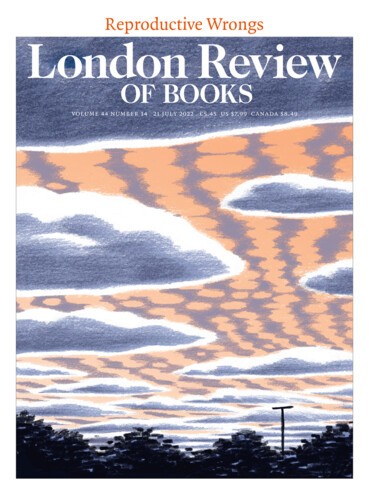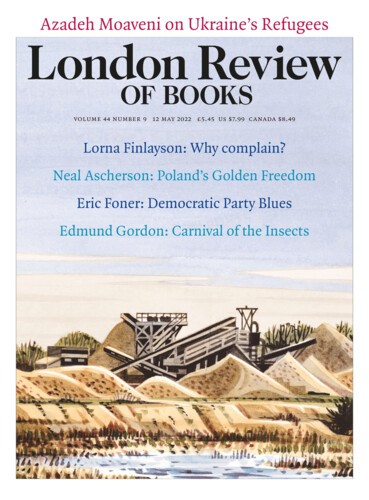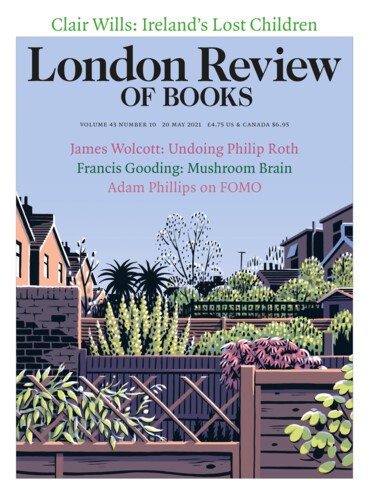To try to make sense of the recent US military operation to capture the president and first lady of Venezuela, Chinese netizens have been looking for parallels in Chinese history. Seeing Nicolás Maduro arrive in the New York winter (the temperature in Caracas is twenty degrees warmer), some people were reminded of the war that ended the Northern Song dynasty.
Mimi Jiang
Mimi Jiang lives in Shanghai.
One year the sandstorm was so thick it painted the sky orange. Even if you sealed all the windows, the next day your tables and floors would be covered by sand. The spring wind blows it in from the Gobi Desert. The smog, by contrast, has many culprits: fossil fuels, coal, heavy industry, too many cars. People in Beijing hate the wind for bringing the sand but love it for blowing the smog away.
Diary: Shanghai Shelf Life
Mimi Jiang, 21 July 2022
During the latest lockdown I ate only rice dumplings, wontons and boiled vegetables. After two months of that it’s difficult to remember what your favourite food tastes like. At the end of April, I traded some homegrown flowers for two pieces of homemade cake and gobbled them in tears. Another time I paid an outrageous price for a small basket of strawberries from a neighbourhood profiteer. Most of us don’t want to see potatoes and carrots (the basis of every government ration package) ever again.
Diary: In Shanghai
Mimi Jiang, 12 May 2022
In Chinese, positive and negative test results are translated as yang and yin. Yang shares the same sound as the word for sheep, meaning that sheep have become the most disliked animals of all. All sheep sculptures in public spaces have been covered with black plastic bags. Small talk has changed from ‘have you eaten?’ to ‘how many sheep are in your building today?’ The strangest thing about this phase of Covid control has been the discrepancy between the results given by staff at Disease Control and the app that gives you your PCR results. Many people have received calls from Disease Control saying they are positive even though the app results are negative. This has led to verbal and even physical fights as police ask the ‘sheep’ to join the ‘quarantine herd’ and the ‘sheep’ bleats back, citing the app. Finally, the government decided to use another app for mass testing, but it crashed on the first day and had scanning problems on the second.
Diary: Fan Power
Mimi Jiang, 20 May 2021
The comedy business in China used to be dominated by male entertainers from the north of the country. In the radio and television era, the most popular forms were xiangsheng (two-handers) and xiaopin (sketches). For xiangsheng, performers wear the traditional cheongsam, hold a fan in one hand and stand in front of a small table: the dou gen, or lead, tells the story and throws out...
Read anywhere with the London Review of Books app, available now from the App Store for Apple devices, Google Play for Android devices and Amazon for your Kindle Fire.
Sign up to our newsletter
For highlights from the latest issue, our archive and the blog, as well as news, events and exclusive promotions.




